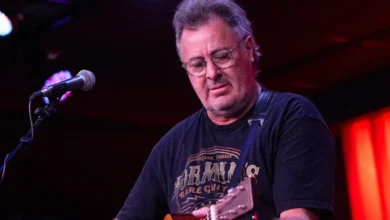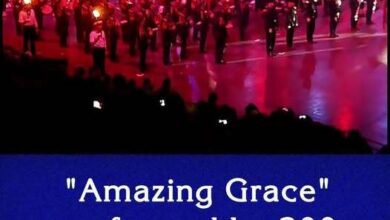The Legacy Continues: Ben Haggard in Music and Faith Like His Father
Ben Haggard, the son of legendary country singer Merle Haggard, has been instrumental in keeping his father’s legacy alive. Through his YouTube channel, Ben shares a collection of personal performances, providing fans a glimpse into the authentic country music style his father was renowned for. One of his standout pieces is a heartfelt rendition of the classic hymn, “Where No One Stands Alone.” In these videos, Ben, often seen with just his guitar, delivers each song with a raw, country authenticity that is deeply rooted in the genre’s tradition.
“Where No One Stands Alone” has a rich history that dates back to the 1950s. The hymn, written by Thomas Mosie Lister, explores the theme of life’s emptiness without the presence of Jesus. Lister’s significant contribution to gospel music has been recognized with his induction into the Gospel Music Hall of Fame in 1976 and the Southern Gospel Music Association in 1997. His work continues to resonate with listeners, transcending generations with its powerful message.
The hymn first gained commercial popularity with its initial recording by the Statesmen Quartet in 1955. This release set the stage for other Southern Gospel artists to embrace the song, with notable renditions by the Blackwood Bros. Quartet in 1956, The Jordanaires in 1959, and the Cathedral Quartet in 1966. Each of these groups brought their unique style to the hymn, contributing to its enduring appeal in the gospel music scene.
Moreover, “Where No One Stands Alone” also captured the hearts of mainstream country artists, leading to its inclusion in several albums over the years. Distinguished country musicians like Don Gibson in 1958, Loretta Lynn in 1965, and Elvis Presley with The Jordanaires and The Imperials Quartet in 1967, among others, have all paid tribute to this hymn in their recordings. The song’s inclusion in Merle Haggard’s 1981 album and later by Alison Krauss and The Cox Family in 1994 highlights its timeless nature and its ability to bridge the gap between gospel and country music. Ben Haggard’s rendition is a fitting continuation of this rich musical legacy, bringing his father’s influence into the present.





